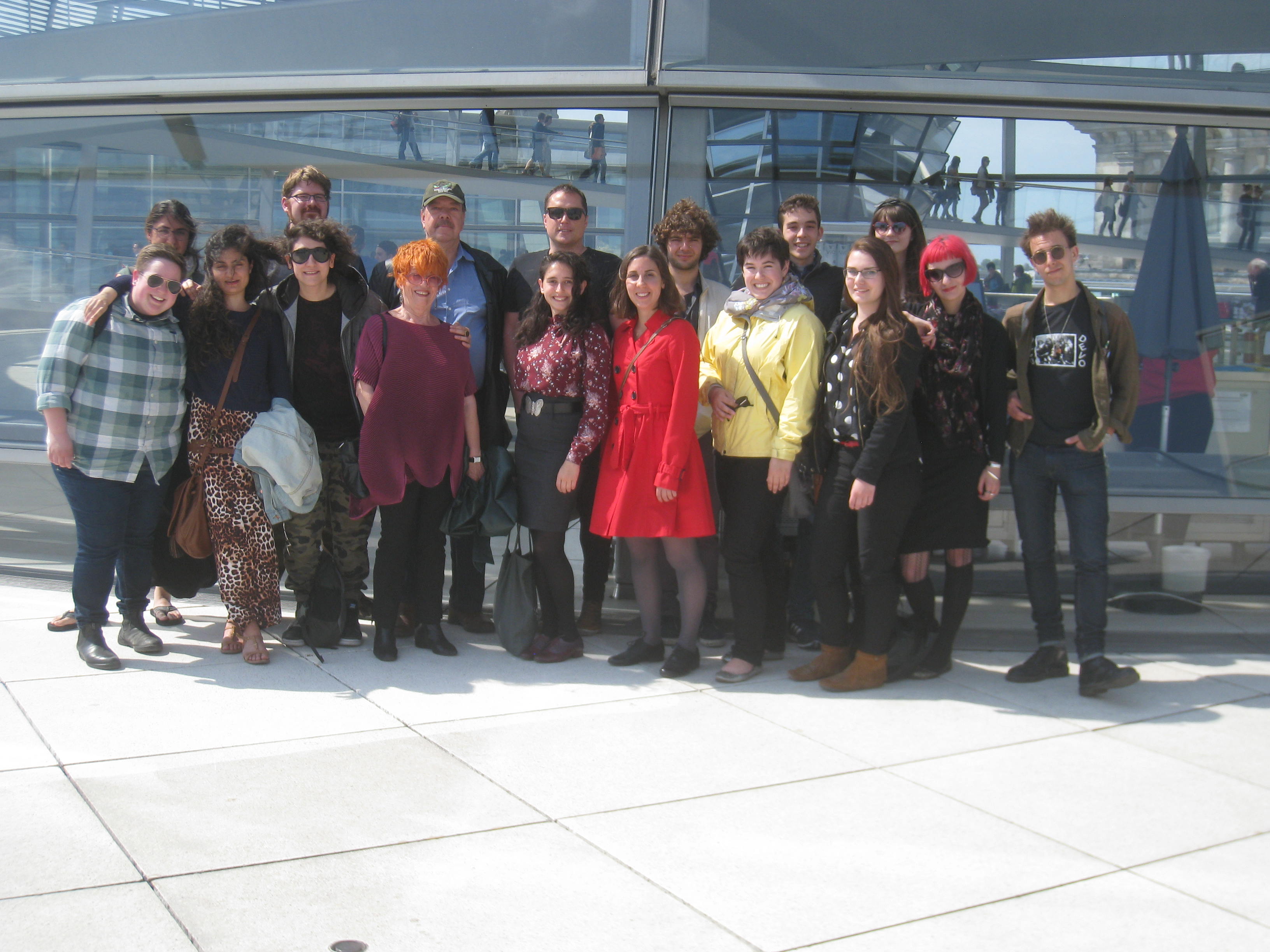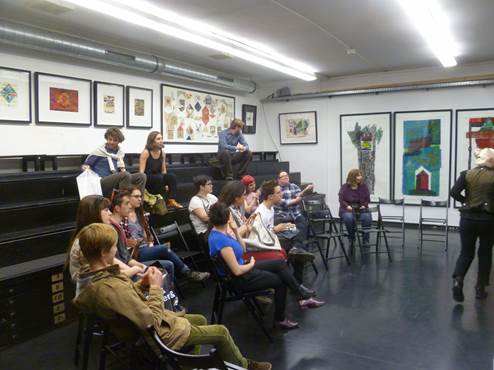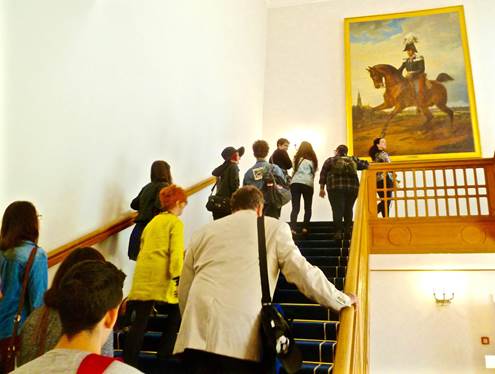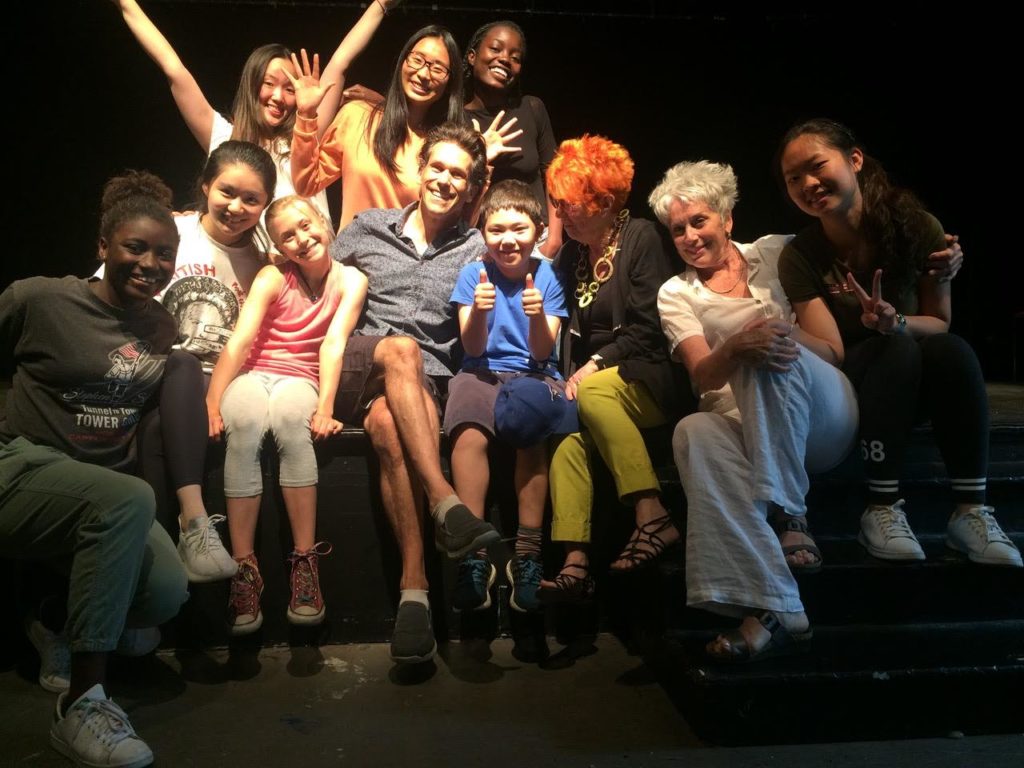
A German-Canadian story in three acts
Pia Kleber, a professor of Drama and Comparative Literature at the University of Toronto, received the Federal Cross of Merit, Germany’s highest civil honor, for her extraordinary achievements in the German-Canadian relationship. SoGerman spoke with Mrs. Kleber about her achievements and continuous involvement in strengthening the ties between the two nations.
Mrs. Kleber always wanted to work in the theatre. “It was always my dream to do the costumes in theatre but first I had to do a tailor’s apprenticeship. I finished the apprenticeship in one year and had to do a practical year as well. I decided to go to Paris and work with Pierre Cardin and eventually stayed with him for two years. One day my mother called me and said: ‘you never wanted to work in fashion so I enrolled you at the entrance examination at the University of Fine Arts in Berlin’. I passed eventually and then started my degree in Berlin.”
Act I
Mrs. Kleber then emigrated from Germany to Canada when she was in her twenties after having met her husband who had already moved to Canada. It was a difficult step for Mrs. Kleber. “Paris and Berlin are my two cities. Then I came to Toronto and there was nothing going on in the culture world” she says.
By now Mrs. Kleber has adapted to her new home: “I’m rooted here now, I could never imagine going back to Germany” she says. “It’s mostly the multicultural aspect and the low bureaucracy. If you want to do something you can just do it if you have the idea and money.”
Mrs. Kleber continued her work in drama in Canada. Through her excellent networking skills, she established bi-annual student trips to Berlin for her theatre students. These four-week trips became so popular, that she eventually landed sponsors and was supported by the German Academic Exchange Service (DAAD). “I wanted to show my students the culture in Berlin and I think it broadened their horizon. Many want to go to Berlin and Germany for their master’s degree now and I think there’s nothing better than getting students into another country.” What came to a surprise for her students was the popularity of theatre in Germany. “They were so impressed by how full the playhouses were and especially how many young people went to the playhouse.”

But the large attendance was not the only difference between German and Canadian theatre scenes. “In Canada, you have a rehearsal time of three weeks. In Germany, you have more time because the theatres are subsidized and you can experiment more.” On the other hand, Mrs. Kleber sees the rich multicultural background in Canada as an advantage for theatre: “I’m always impressed when I go to Montreal how good the theatre is and how many different theatre groups there are.”

Act II
Bringing together those cultures is one of Mrs. Kleber’s goals that she wants to attain with another project of hers: the summer school program at the University of Toronto. “Students from Africa, the Arabian Peninsula, Korea and China live and learn English and Drama together in the Canadian metropolis. We had a girl from Korea and she was super shy but playing theatre and standing in front of a camera completely changed her.” Students interested in the program have to apply with a cover letter and a Skype interview with Mrs. Kleber. Once they pass an English test they are admitted. “I was always interested in combining theory with practice and I try to do that in my program as well.” They start their day at 8 am with breakfast, camera lessons as well as speech and movement training, followed by a lunch at 1 pm and English lessons from 2 until 4 pm. In the evening Mrs. Kleber and her students have dinner together and afterwards go out. “One of the most important things I tell my students is: ask questions! Unfortunately, with the internet and smartphones, the tendency to ask a question is declining.”

Act III
For the future, Mrs. Kleber hopes to explore the intersections between artificial intelligence and drama. “We have faculties for music, fine arts and drama but the University of Toronto is so big that I want to bring them together under one roof to experiment with artificial intelligence.” Mrs. Kleber was inspired by other artists and recent interpretations of old plays: “There are already artists working with artificial intelligence but they are isolated all over the world and I want to bring them together.”
One of the most important things I tell my students is: ask questions! Unfortunately, with the internet and smartphones, the tendency to ask a question is declining.